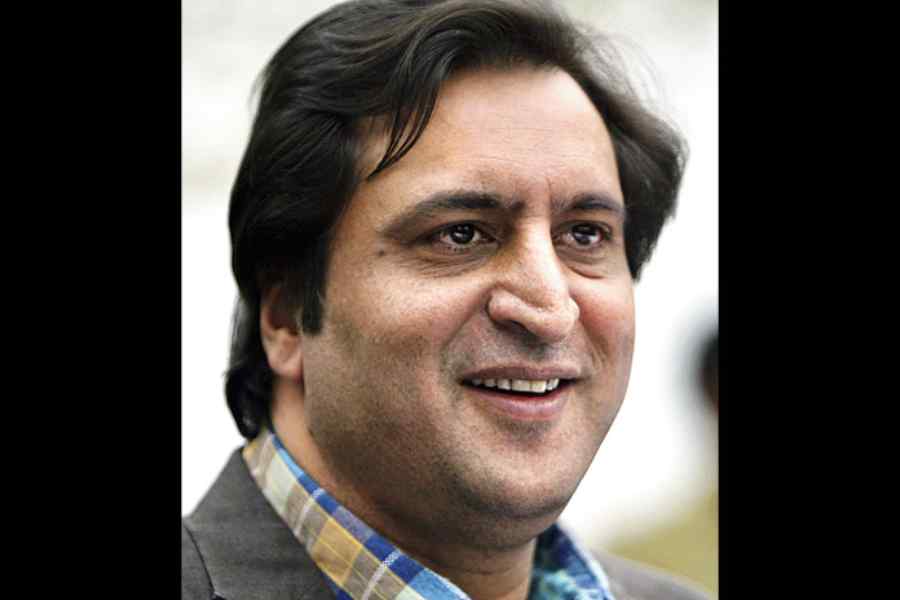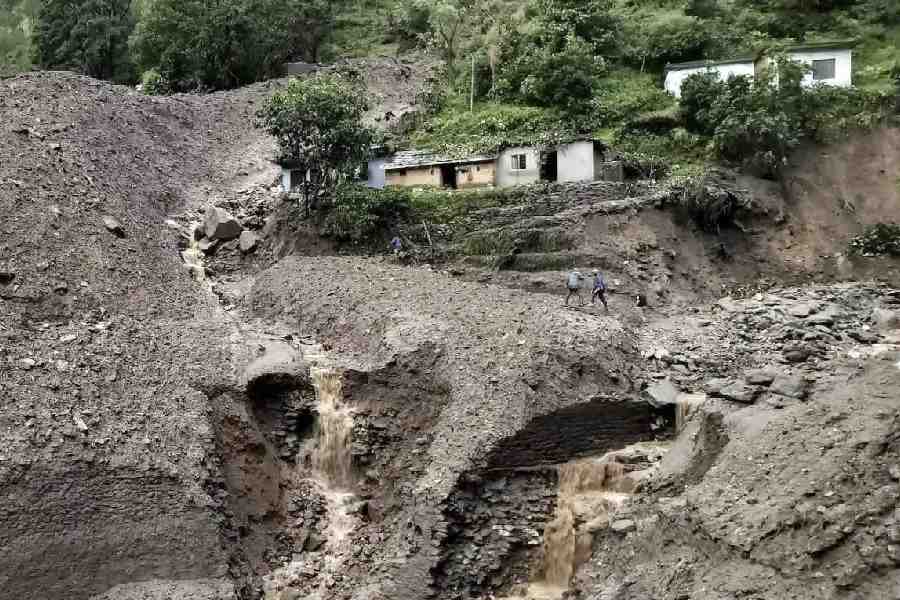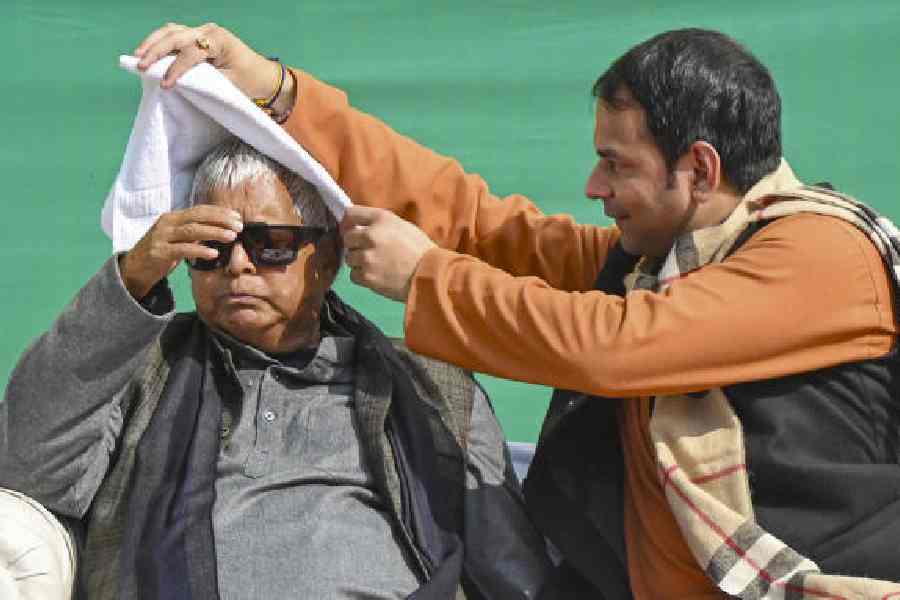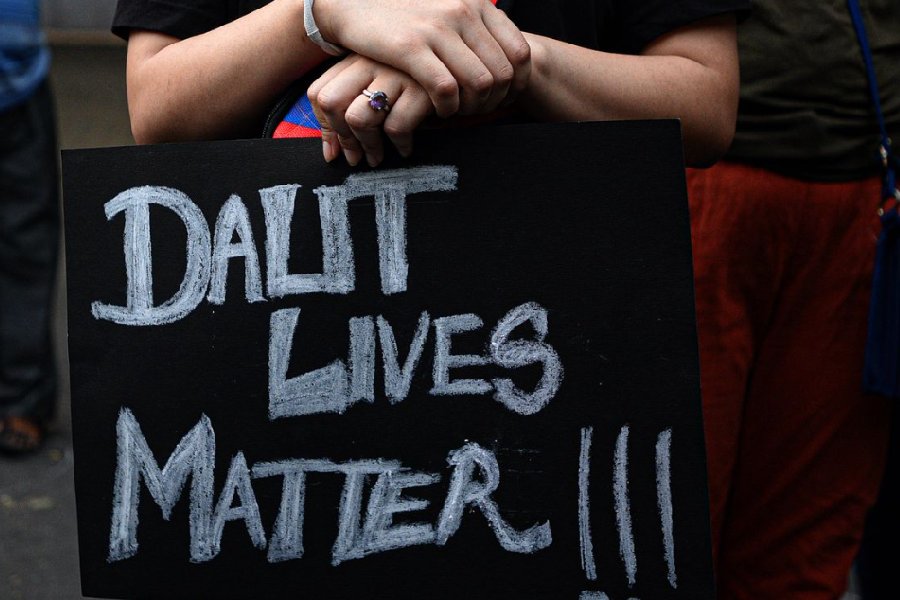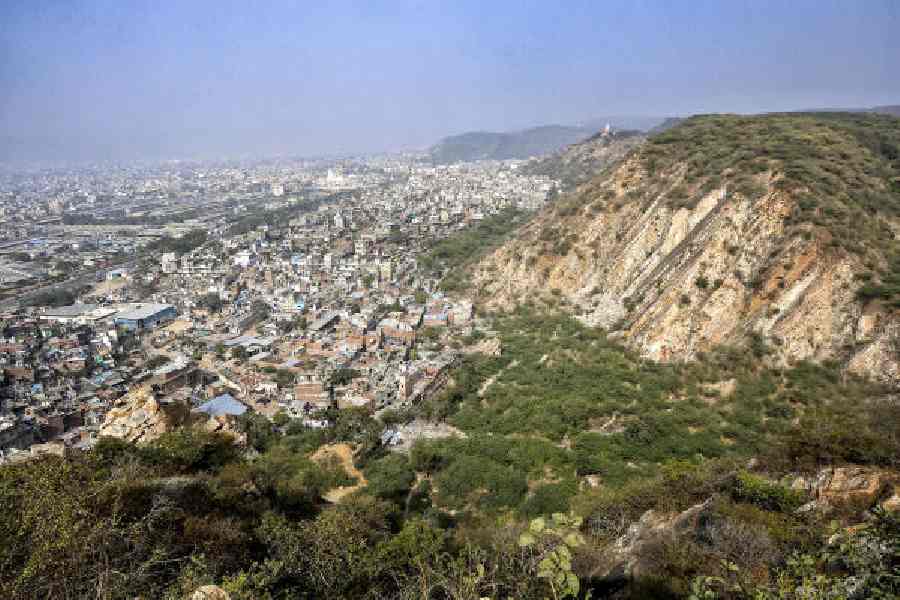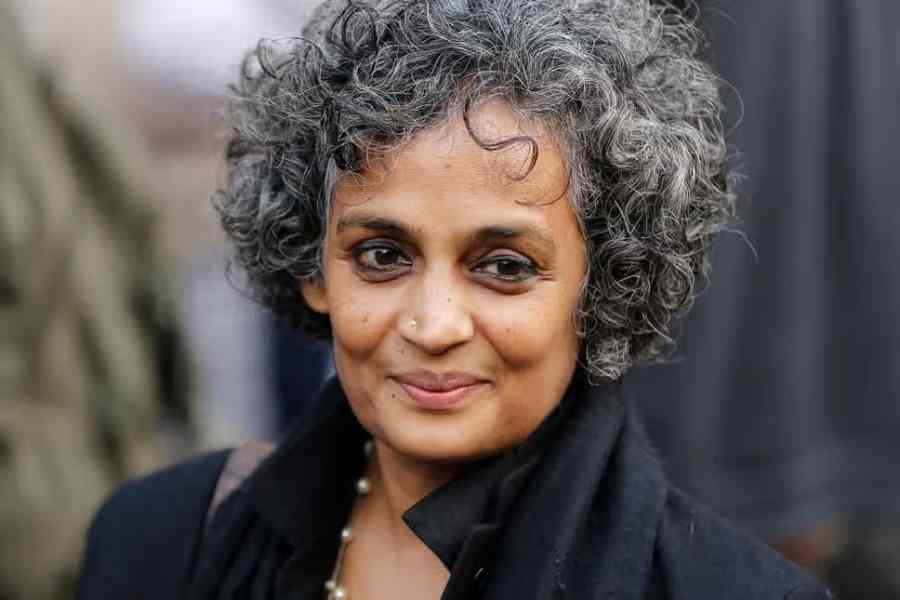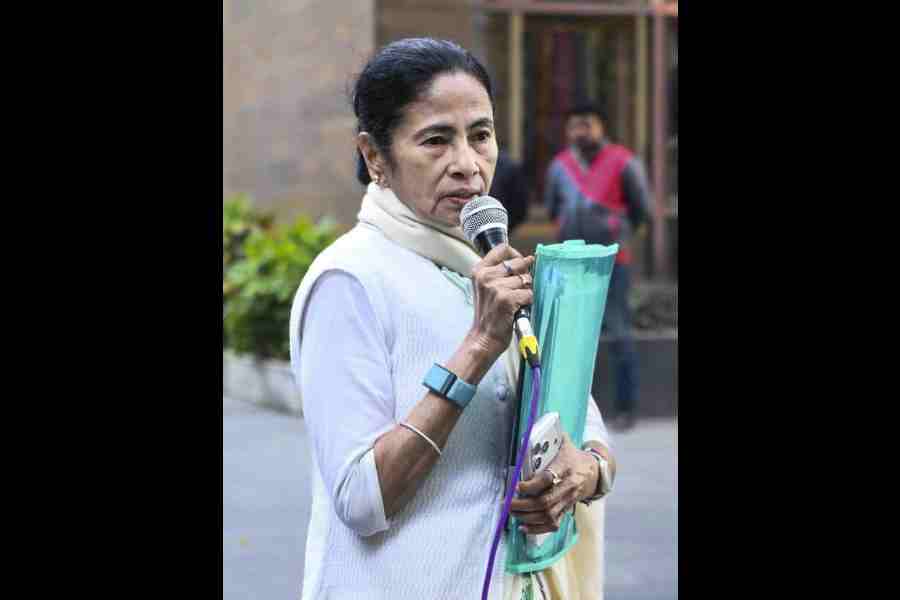Revisiting history
Sir - Ramachandra Guha's article, "A question of sources" (Sept 17), describes what the triumph of Hindutva would mean for India. M.S. Golwalkar, an icon of the Rashtriya Swayamsevak Sangh, held Hindus to be superior to Muslims, Christians and people of other religions. Although the Hindu faith seems to be heterogeneous, rigidity lies at its heart. The attitude of the RSS towards the British rulers is well documented in history. Golwalkar considered anti-British activities as reactionary. So the RSS refrained from participating in popular anti-British movements in the 1940s.
The communal holocaust that was fuelled by Mohammed Ali Jinnah's call for Direct Action led to the Great Calcutta Killings in August 1946. This was regarded as the 'finest hour' by the RSS. The organization actively participated in the riots and carried out relief works in Hindu refugee camps. It contributed vastly to the creation of a fear psychosis among large sections of Hindus against Muslims. Although the RSS was guilty of participating in such dangerous campaigns, some sections of the Congress remained sympathetic towards the RSS. Jawaharlal Nehru, however, remained bitterly hostile. It is ironic that a former member of the RSS - the organization that had attempted to sabotage the Indian freedom struggle - holds the country's top office.
Yours faithfully,Shovanlal Chakraborty,Calcutta
Sir - M.S. Golwalkar was a reactionary whose ideas can have no place in a modern, liberal democracy. His beliefs were almost similar to the Nazi ideology, which was developed and nurtured by Adolf Hitler. Golwalkar glorified the Aryan race and saw Germany as a model. To maintain the purity of race, Germany had carried out a genocide to exterminate Jews.
In the article, "What is this Hindu Rashtra?" (March 12, 1993), Sitaram Yechury had mentioned that Golwalkar dismissed every tenet of modern human civilization - liberty, equality, fraternity, secularism - as alien concepts. As long as Golwalkar's ideals are in vogue, Hindus will find it difficult to accept India's religious and cultural pluralism. In Golwalkar's concept of the Hindu rashtra, only the Hindus are the real citizens. People belonging to other religious groups are assigned secondary status.
Yours faithfully,D.J. Azavedo, Calcutta
Share and care
Sir - The issue of penalizing people for photocopying books is a tricky one ("Copy wrong", Sept 21). The penalty would help publishers earn their rightful profit. But it would also stop the dissemination of knowledge as the photocopies of important books would no longer be widely available. The ideal solution would be to strike a balance between the two, so that knowledge is propagated unhindered and, at the same time, authors and publishers are adequately rewarded.
The Delhi High Court has rejected the plea of some foreign publishing houses, which had petitioned against the sale of photocopies of books brought out by them. If students have not been buying these books and relying on cheaply available photocopied materials instead, publishers and authors must have been bearing the loss. One possible solution to this problem may be to bar large-scale photocopying of books for a certain number of years, beyond which one would be free to photocopy. The conflict will not end here. If a petition is filed again, the court must take into consideration other options to bring about parity.
Yours faithfully,Ashok Kumar Ghosh,Calcutta
Sir - The editorial, "Copy wrong" (Sept 21), provides an incisive analysis of the Delhi High Court verdict. The court's decision will affect publishing houses as well as authors. The verdict upholds the right of shop-owners to earn profit by selling photocopies of books to students. Publishers, like any other business venture, are driven by the motive to earn profit. As a result of the high court's decision, publishing houses will now refrain from undertaking assignments where they would be unsure of recovering the cost.
Photocopiers make profits without incurring the expenses for writing, editing or printing books. But with the advent of new technology, it is now impossible to enforce intellectual property rights if a book is shared or leaked on the internet. The problem needs to be addressed by the concerned authorities at the earliest.
Yours faithfully,Asit Kumar Mitra, Calcutta
Parting shot
Sir - The tussle between Karnataka and Tamil Nadu over the sharing of the Cauvery waters has captured the attention of the entire nation. The Supreme Court has ordered the Karnataka government to release 6,000 cusecs of water every day till September 27. It is unfortunate that the Cauvery issue has taken such an ugly turn. Incidents of violence, destruction of public property, hooliganism and strikes have been reported from both the states.
These cases have been fuelled and exploited by local politicians. All this has caused immense suffering to citizens. Politicians have turned India into a lawless land. Most of the time, the police force remains a mute spectator because of political pressure. The Cauvery dispute must be resolved at the earliest.
Yours faithfully,M.M. Kale, Kakinada,Andhra Pradesh
BIHAR
Cause for worry
Sir — I would like to draw the attention of the state government to the tragic death of over 30 passengers in a road mishap in Bihar’s Madhubani district. The driver is reported to have lost control over the bus while speeding, and the vehicle plunged into a deep pond. I also find that there are many road accidents in which commercial vehicles are involved. These accidents occur on account of rash driving, and the death tolls are often high. Buses, trucks and even three-wheelers on the roads of Bihar follow no traffic rules, and are, therefore, dangerous.
The state government must not dismiss the Madhubani incident as just another road accident. It must re-examine the licences issued to drivers of commercial vehicles. It is no secret that the transport authorities issuing these licences are dens of corruption. Licences are often granted without the recipients having to pass the mandatory tests. The process for acquiring a driving licence must be made more stringent and transparent. The lives of citizens must not be endangered. At present, even traffic policemen complain about rash driving and the scant respect that commercial drivers have for the rules. Bus drivers are the worst offenders. Drivers of commercial vehicles should be made to re-take the driving test every three years.
Yours faithfully, C.K. Jha, Darbhanga
Bad company
Sir — It is disconcerting to see Bihar’s politicians being photographed with people who have dubious reputations. The health minister, Tej Pratap, who is the son of the Rashtriya Janata Dal chief, Lalu Prasad, was photographed with a man who is an accused in a murder case. When this drew flak, the RJD retaliated by releasing photographs of Bharatiya Janata Party leaders with persons who have undesirable track records.
Politicians across party lines have pleaded that they are public figures and, therefore, cannot avoid being photographed in the company of persons with whose reputations they are not familiar. I do not buy this argument. Persons with dubious track records tend to flaunt their proximity to politicians. These photographs legitimize their claims and give them social sanction. Criminals gain acceptance by the people on the grounds that they have the approval of politicians.
Politicians cannot risk being near persons who are known for crime and violence. The threat to politicians’ lives cannot be denied — one must remember the manner in which Rajiv Gandhi was assassinated. It would be better if the records of persons are scrutinized by security personnel before they are allowed to meet politicians.
Yours faithfully, Girish Kumar, Patna
ODISHA
Second chance
Sir — Cricket lovers in Odisha are thrilled by the decision of the Board of Control for Cricket in India to grant permanent Test venue status to Barabati Stadium (“Barabati Test venue again”, Sept 22). The Odisha Cricket Association should be lauded for its untiring efforts to convince the BCCI in this matter. The incident in which crowds jeered at players and threw bottles into the field during the second Twenty20 international match held at this venue was shameful. The OCA has work cut out for it if it wants to make sure that such an incident does not recur. The widening of NH5 — linking Bhubaneswar, where the airport is, with Cuttack — will make it easier for players to reach the stadium. People in Odisha are looking forward to enjoying Test matches at Barabati Stadium.
Yours faithfully,Sanjay Badajena, Cuttack
Sir — The timing of the BCCI’s decision to make the Barabati Stadium a permanent Test venue is crucial. A host of Test matches is scheduled to take place in India in the near future. One hopes that the BCCI will schedule a few of these matches at Barabati Stadium. The government should ensure that players who come to the state do not face any difficulty. The shameful bottle-throwing episode should not be allowed to happen again.
Yours faithfully,Udit Biswal, Cuttack
Sir — I do not think that the BCCI has been wise in allowing Barabati Stadium to host Test matches. The crowds have already brought shame upon the state by throwing bottles during a match in which the Indian side underperformed. The match had to be called off because of the unruly behaviour. The captain of the Test side, Virat Kohli, should not allow any matches to be held at Barabati Stadium. If people here do not have the maturity to understand that in any sport one side loses and another wins then the state should be happy with having the status of being a permanent Test venue in name only.
Yours faithfully,Aasman Swain, Bhubaneswar
Sir — Barabati Stadium being granted the status of a permanent Test venue is a matter of pride for Odisha. Test cricket is a slow format of the game. It has lost its popularity amongst youngsters. However, Test cricket is the most pure and technical form of the game. Young people in Odisha can now watch live Test matches at Barabati Stadium and feel inspired. The OCA has done a commendable job by convincing the BCCI to take this
decision.
Yours faithfully,Sachin Mohapatra, Jajpur
Sir — The state government and the OCA have a tough job ahead if they do not want the incident where the crowd hurled bottles in Barabati Stadium to be repeated. The incident marred the image of the venue. Since Test matches are played over five days, controlling the crowds and ensuring the safety of players become a huge task. The OCA and other stakeholders must see to it that the matches are conducted smoothly. The BCCI has given a new lease of life to the lone cricketing venue in Odisha. People of the state should cooperate with the authorities if the glory of Barabati Stadium is to be restored.
Yours faithfully,Mahendra Sharma, Rourkela


